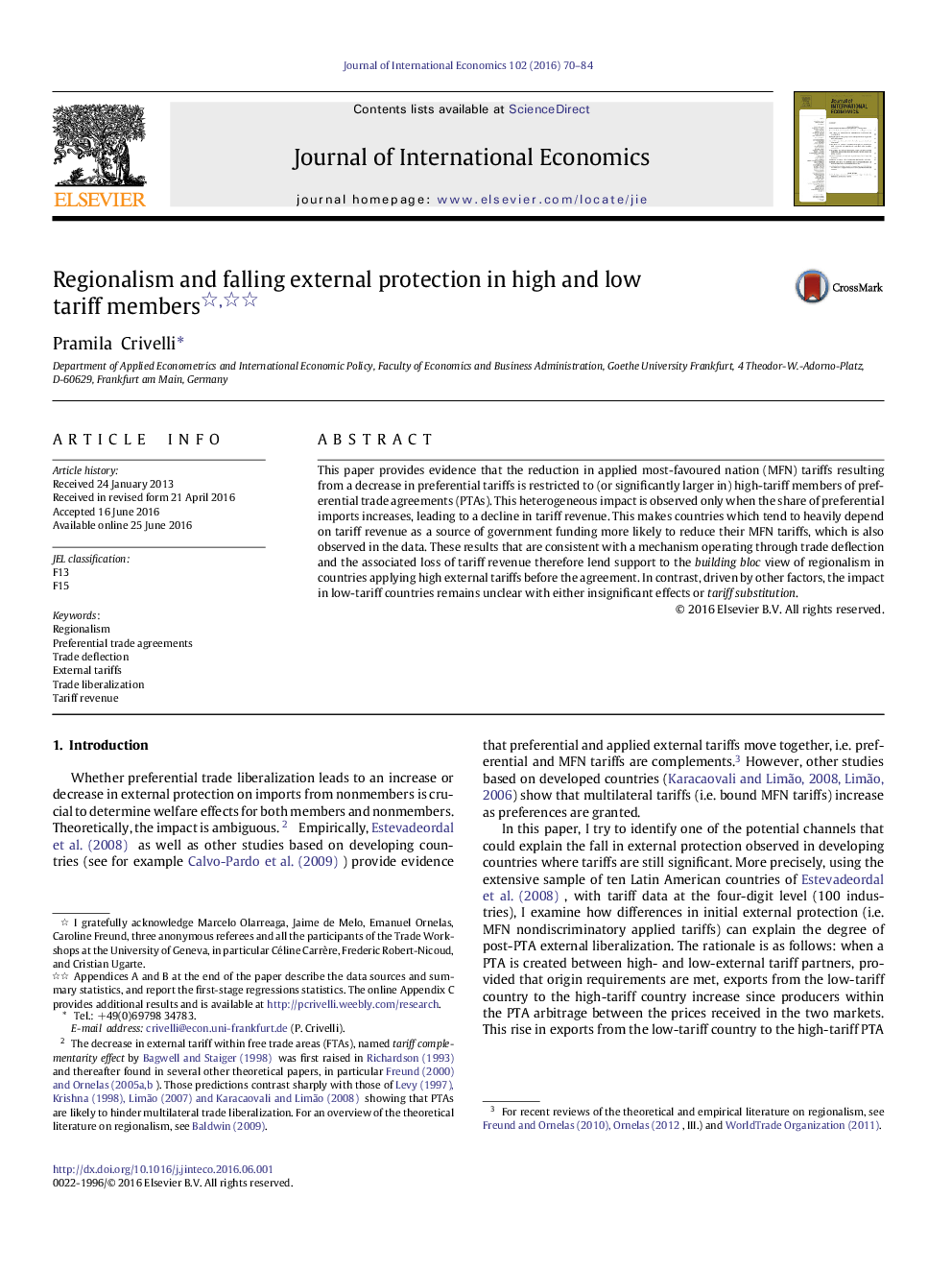| Article ID | Journal | Published Year | Pages | File Type |
|---|---|---|---|---|
| 7364005 | Journal of International Economics | 2016 | 15 Pages |
Abstract
This paper provides evidence that the reduction in applied most-favoured nation (MFN) tariffs resulting from a decrease in preferential tariffs is restricted to (or significantly larger in) high-tariff members of preferential trade agreements (PTAs). This heterogeneous impact is observed only when the share of preferential imports increases, leading to a decline in tariff revenue. This makes countries which tend to heavily depend on tariff revenue as a source of government funding more likely to reduce their MFN tariffs, which is also observed in the data. These results that are consistent with a mechanism operating through trade deflection and the associated loss of tariff revenue therefore lend support to the building bloc view of regionalism in countries applying high external tariffs before the agreement. In contrast, driven by other factors, the impact in low-tariff countries remains unclear with either insignificant effects or tariff substitution.
Related Topics
Social Sciences and Humanities
Economics, Econometrics and Finance
Economics and Econometrics
Authors
Pramila Crivelli,
